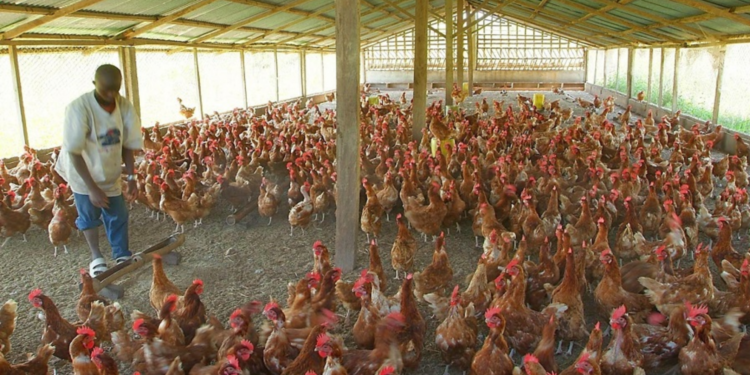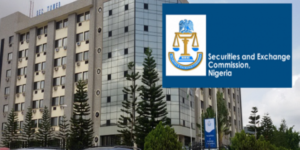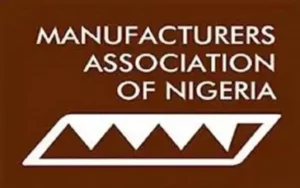
The rising cost of poultry feed is severely impacting Nigerian poultry farmers, with many struggling to keep their businesses afloat.
Despite these challenges, processors have placed restrictions on how much some farmers can charge for their products, leaving them with little room to make profits.
Adekola Saheed, a poultry farmer expressed frustration over the situation, highlighting how rising feed prices are eroding profitability. He disclosed that raising 2,000 broiler chickens requires approximately 280 bags of feed, each weighing 25kg.
“At an average price of N27,800 per bag, that’s a huge cost before even factoring in labor, electricity, and medication.”
“The prices do not reflect the rising cost of production. Despite the increasing cost of poultry feed, which has surged from N25,000 in December to N27,800, the buyback price offered by processors has not changed significantly.
“We are not the ones setting our prices, the processors are the ones dictating the price, not us,” he noted
In May 2023, President Bola Tinubu’s administration implemented significant policy changes, notably the removal of fuel subsidies, which led to an immediate economic impact.
The price of petrol surged by over 100%, which in turn increased transportation and food costs. To address rising food prices, he later declared a state of emergency on food insecurity.
These economic shifts have had a profound effect on the poultry industry. The costs of essential livestock feed ingredients, such as maize and soybeans, have risen sharply since the subsidy removal.
This surge in feed prices has significantly increased production costs for poultry farmers, squeezing profit margins and threatening the sustainability of their operations.
The Nigerian government banned poultry imports to protect local industries. However, despite this measure, challenges in the sector persist, with rising production costs threatening sustainability.
Mr. Emmanuel Elom, a poultry farmer, also emphasized that feed costs are the biggest challenge for poultry farmers. He explained that while poultry farming appears profitable, expenses such as feed, mortality, and medication significantly reduce earnings.
” The public thinks poultry farming is very lucrative, but they don’t consider the expenses.
“Yes, we buy birds at N1,000 plus and sell at N10,000, but feed and medication costs eat deep into that money.
“For 1000 birds, a bag of super starter feed is 39,000 and you need at least 2-3 bags of this. In addition to the super starter, you would need an ordinary starter and finisher feeds. Cumulatively you’ll need just about 10 bags,” he stated
Another poultry farmer echoed similar concerns, stressing that poultry farming yields little profit, “the lack of laboratory facilities to diagnose bird diseases further complicates disease management,” he said.
Profit margins are narrow, with farmers earning just N200 per bird if they manage to sell at the right time, typically after two months.
“If one is lucky to have a large farming space for the birds, that would mean you would rare a greater number of birds. Let’s say you have the capacity for N1000 birds, and you get N200 times the 1000 birds that is N200,000,” he said.
Ayo stated that the fluctuating cost of feed remains a major challenge.
“The price of poultry feed is increasing. Last week alone, the price per 25kg bag of top-grade feed rose from N18,000 to N19,500,” he explained.
The cost fluctuation affects farmers’ ability to maintain steady profits. Many customers resist the price hike, making it difficult for farmers to adjust their selling prices immediately.
“Customers need time to adapt to price increases, and within that time, farmers suffer losses,” Mr. Ayo added.
He explained that many farmers are cutting down on production due to financial strain, leading to fears of a shortage in the coming months.
“Some of my colleagues have had to shut down because they can no longer afford to buy feed. If this continues, more people will exit the industry, and poultry prices will eventually rise,” he warned.
Commenting on the rising costs of feed, Mr. Elom said, “The prices of feeds are high because most of the materials used in feed production, like wheat and maize, are imported. Some farmers even choose to export rather than sell locally because of currency exchange rate gains. When they export, it’s more profitable for them.”
“The government is supposed to buy from the farmers so they don’t incur losses and can return to their farms. With the policy restricting exports, does it mean they don’t want farmers to make a profit? If they sell locally and don’t see any profit, they won’t want to return to farming,” he emphasized.
Earlier reported that the Chairman of the Poultry Association of Nigeria (PAN), Mojeed Iyiola, attributed the price hike to the soaring costs of raw materials for bird feed.
“The price keeps getting expensive because of the high cost of raw materials. Despite all the government’s support and the open window for the importation of maize, the prices of feeds are not even going down at all.
This is because other raw materials for the formulation of bird feeds are not being subsidised at all. Although maize takes between 60 and 65 per cent of feed production, other materials are on the high side.”
“We still pay high prices for materials like soya, methylene, lysine, and premix. So, the intervention of government has not even reflected at all on the price of poultry produce.”
The association also requested licenses to import maize directly, they argue that direct importation would allow them to procure maize at more affordable rates, thereby reducing production costs arguing that middlemen inflate costs and strain farmers further.
Insecurity, climate change, and structural issues have also severely impacted Nigeria’s food production, driving up the cost of livestock feed like maize and soybeans.
A report by S.B. Morgan Intelligence states that 1,356 farmers, mostly in the North, were killed between 2020 and 2024, while others paid up to N100,000 to access their farms.
Food inflation hit a 28-year high of 40.87% in June 2024, worsened by rising petrol prices and flooding.
Despite rising feed costs, poultry processors continue to enforce price controls on the birds they purchase from farmers, leaving independent producers struggling to remain profitable.
Processors play a crucial role in the poultry supply chain by slaughtering, processing, and distributing chicken products.
However, many of them have entered into direct agreements with feed suppliers, allowing them to access feed at subsidized rates.
These discounts enable them to resell feed to contracted farmers at prices lower than the open market. In exchange, the processors buy birds from these farmers at a fixed price, limiting the farmers’ ability to adjust their selling prices.
Speaking on the development, a processor, Akinniyi Akinleye, explained how these arrangements work:
“The farms we subsidize for take feeds at a discounted price from registered feed companies. They are given a rebate of about 2% to 4% per quarter on all their purchases. For instance, if a truckload of feed costs around N16 million, they get a rebate of about N300,000 per truck, which translates to roughly 12 bags of feed,” he said
Farmers, however, argue that these prices do not take their production costs into account. They say that without the ability to adjust prices, they are being pushed toward losses or business closures.
Saheed stressed that while the Processors aim to protect the interest of their own business, they are harming poultry producers in the process.
“Independent farmers have no say in setting their prices because the big players control the market,” he lamented.
“If we cannot adjust our prices to reflect our costs, we will eventually have to stop production. The government needs to intervene before this sector collapses,” he said.
Despite the difficulties, poultry farmers have found ways to generate additional income.
“We sell used feed sacks for N1,500 per dozen, and poultry litter (waste) is sold for N2,000 to N2,500 per bag. These small streams of income help keep the business running,” Saheed explained.
For Elom, who also runs a vegetable farm, poultry waste serves as natural manure and is a better option for vegetable crops than fertilizers.
“Chicken waste works well for vegetables compared to fertilizers, and it helps me make good proceeds,” he explained.
He added that local traders buy the vegetables directly from his farm, providing an additional income stream.
Poultry farmers are now calling on the government to provide support, such as subsidies or price adjustments, to ensure the sector remains viable.
Saheed emphasized the need for immediate action, urging authorities to regulate feed prices instead of controlling selling prices.
“If the government can step in to stabilize feed prices, this will reduce the cost of egg and chicken prices significantly and also reduce the cost we farmers spend. The real issue is the rising cost of production, not just the selling price,” he explained.
Akinleye the poultry processor further stressed the impact of maize prices on poultry production.
“The government needs to reduce the price of maize because that’s where the real problem lies. Without affordable feed, poultry farming becomes unsustainable,” he said.
The ongoing crisis in Nigeria’s poultry sector highlights the urgent need for policy adjustments to balance both producer and consumer needs while ensuring the sustainability of the industry.
Reported that the Poultry Association of Nigeria (PAN) reported that around 50% of poultry farmers in the country have shut down due to a rise in input prices.
The rising cost of poultry feed is reshaping Nigeria’s poultry industry, putting small and medium-scale farmers at risk of shutting down due to unsustainable production costs.






